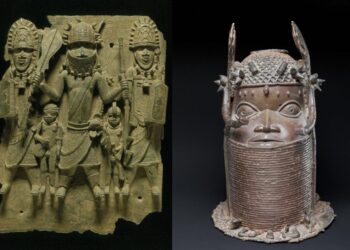
A judge has dismissed as “politically motivated” an extradition request by the Turkish government for a dispossessed media proprietor to be sent for trial in Ankara.
Judge John Zani also refused the application on the grounds that extraditing Hamdi Akin İpek and three other Turkish nationals would put them at risk of serious mistreatment.
İpek, whose newspapers and TV stations have been confiscated by Turkish officials for criticising the regime of the president, Recep Tayip Erdoğan, appeared alongside the other men at Westminster magistrates court on Wednesday.
Delivering his ruling, Zani said he was “satisfied that this is a politically motivated prosecution”. If they were returned to Turkey, he added, there would be a real risk of breaches of Article III of the European Convention of Human Rights, which states no one should be subjected to torture, degrading treatment and punishment.
The case against İpek and his co-accused follows demands for the UK to send back fugitives supposedly involved with the Fethullah Gülen movement, which the Turkish government claims was responsible for the 2016 uprising against Erdoğan.
Last year, the Turkish prime minister, Binali Yıldırım, met his British counterpart, Theresa May, and asked her to extradite those supposedly associated with the failed coup.
The Crown Prosecution Service (CPS), which represented the Turkish government in the hearing, said it would appeal against the decision.
The ruling is the latest in a series of refusals by British courts to extradite suspects to Turkey, where thousands of journalists, lawyers and civil servants remain in prison following the failed 2016 coup.
Although Turkey is a fellow member of the Council of Europe and Nato, there has been criticism of the UK government for formally certifying the Turkish government extradition given the country’s recent human rights record under Erdoğan.
Speaking after the hearing, İpek, the chairman of the Koza-İpek Group, said: “The Turkish government has waged a campaign of harassment and intimidation against me, my family and my employees for the past three years, for no reason other than I am perceived as an opponent of the Erdoğan regime.
“These attacks have seen the regime unlawfully seize the businesses and assetsof the Koza-İpek Group, which was founded by my father and has traded with an impeccable reputation for more than 70 years. The group’s media outlets have been closed down because our balanced coverage occasionally included material that was critical of the government. Worst of all, my brother, Tekin, was arrested and has been in prison for more than three years on baseless grounds and with no access to justice.
“In the last six months, these attacks have made their way to British shores. I have been followed in London and secretly filmed by those acting on behalf of the Erdoğan regime. I have received dozens of death threats, provoked by the actions of those at the highest level of the Turkish government.
“There are thousands of other businessmen, judges, civil servants and journalists who are unable to make their case due to the collapse of democracy and the rule of law in Turkey. The human rights abuses taking place are unacceptable for any civilised country and action must be taken urgently to end this.”
Michael Drury, a partner at the law firm BCL Solicitors LLP who represented İpek, said: “Seldom can there have been a clearer case of a nation state persecuting three obviously innocent men on perverse grounds.
“The hatred shown by the government of Turkey towards its believed opponents was apparent in the evidence brought before the court where government officials have described followers of the teachings of Fethullah Gülen as ‘dogs’ and not worthy of living.
“The British public will find it surprising that a case like this was certified by the home secretary as fit for bringing before the court.”
Turkey’s justice minister, Abdulhamit Gül, said the UK court’s decision was unacceptable. In a tweet translated by BBC Monitoring, he said: “The Turkish judiciary’s extradition request is a requirement of international law and conventions. The UK judiciary’s decision for refusal has the characteristics of an assessment with political content. That is why it is impossible for us to accept the refusal decision … and its justification.
“Our expectation from the UK is to extradite all FETO [Fethullah Terror Organisation] member fugitive terrorists, as necessitated by international law and conventions, and to show its friendship and alliance in this way.” İpek denies involvement in the 2016 coup attempt.
The CPS has 14 days to lodge an appeal against the decision.
–
Source: Guardian | UK













